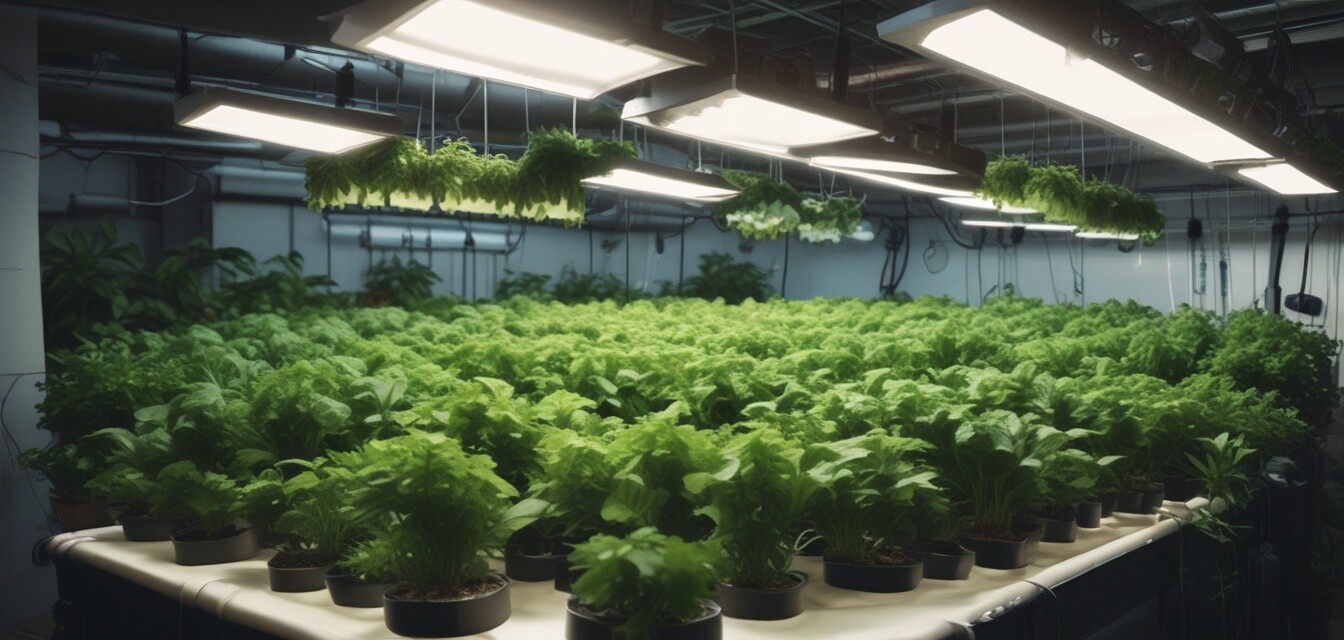
Best Tools for Hydroponic Gardening
Key Takeaways
- Hydroponic gardening is an efficient way to grow plants without soil.
- Essential tools include nutrient solutions, grow lights, and growing media.
- Understanding the different hydroponic systems will help you choose suitable equipment.
- Investing in quality tools enhances plant growth and yields.
- Beginner-friendly guides can further simplify the setup process.
Hydroponic gardening is taking the gardening world by storm, allowing enthusiasts to grow a variety of plants without relying on traditional soil. Instead, this innovative method provides nutrients directly to the roots, leading to faster growth and higher yields. However, to achieve success in hydroponics, having the right tools and equipment is essential.
Getting started with hydroponics
Before diving into the tools you'll need, understanding the different hydroponic systems is key. The system you choose will influence the kind of tools you'll require. Below are some common hydroponics systems:
- Deep Water Culture (DWC)
- Nutrient Film Technique (NFT)
- Wicking Systems
- Drip Systems
- Vertical Systems
Essential tools for hydroponic gardening
Here’s a comprehensive list of the essential tools every hydroponic gardener should consider:
| Tool | Description | Purpose |
|---|---|---|
| Nutrient solutions | Liquids containing essential nutrients for plants | Provides necessary nutrients directly to plants' roots |
| Grow lights | LED or fluorescent lights that replicate sunlight | Encourages photosynthesis, especially indoors |
| Growing media | Substitutes for soil, including Rockwool and coconut coir | Holds moisture and supports plant roots |
| Water pumps | Devices that circulate water in hydroponic systems | Ensures nutrient solution reaches plant roots |
| pH meter | Instrument for measuring the acidity of the nutrient solution | Helps maintain the correct pH for nutrient uptake |
| Air pumps | Pumps that introduce oxygen into the nutrient solution | Prevents root rot and promotes healthy growth |
| Pruning shears | Sharp scissors designed for cutting plants | For trimming and maintaining plant size |
Understanding the importance of each tool
Each of the tools listed above plays a significant role in the success of your hydroponic garden. Here's a deeper dive into why they matter:
- Nutrient solutions: Hydroponics eliminates the need for soil, but plants still require vital nutrients to thrive. These solutions are specially formulated to ensure plants receive what they need.
- Grow lights: For indoor setups, investing in good-quality lights is crucial. They need to emit the right spectrum of light to support plant growth.
- Growing media: Choosing the right medium can affect water retention and aeration. Evaluate your plants' needs when selecting the appropriate medium.
Choosing the right hydroponic system
Depending on your gardening goals and space limitations, different hydroponic systems will require different tools. For example, a Deep Water Culture set-up will require air stones and pumps, while a Nutrient Film Technique setup will demand a slightly different configuration of water delivery and drainage. For an in-depth understanding, check our guide on buying hydroponic systems.
Maintenance tools for hydroponic systems
Once your hydroponic system is set up, it's vital to maintain it properly for optimum performance. Below are additional tools that can help:
- Thermometer
- Hygrometer
- Nutrient testing kit
- Water filter
The role of environmental control
Maintaining the right temperature and humidity is essential for plant health. By using a thermometer and hygrometer, you can ensure your plants are growing within optimal conditions.
Tips for beginners
Beginner's section
- Start small: Begin with a few plants to understand the nuances of hydroponic gardening.
- Research: Familiarize yourself with the specific needs of the plants you intend to grow.
- Monitor closely: Pay attention to nutrient levels, pH, and environmental factors.
- Practice patience: Understand that establishing a hydroponic garden takes time and adjustments.
Conclusion
Hydroponic gardening is an exciting venture that opens up new possibilities for growing plants efficiently and effectively. With the right tools and a solid understanding of various systems, both beginners and seasoned gardeners can enjoy fruitful results. Whether you're contemplating a simple home garden or planning a larger scale operation, investing in quality equipment and educating yourself through comprehensive guides will set you on the path to success.
Pros
- Faster plant growth
- Higher yields
- Greater control over growing conditions
Cons
- Requires initial investment in equipment
- Can be technical and complex for beginners
- Demanding maintenance in terms of monitoring systems